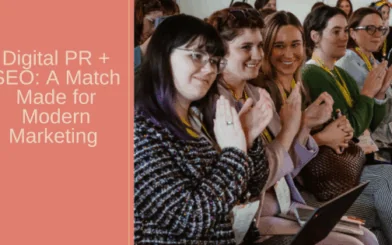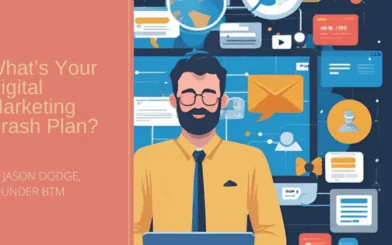Being mentally and physically drained from nearly 8-hour days of learning from some of the greatest minds in our industry still left me looking for more. If you missed out on the first 2-days of MozCon 2012, check out day-1 recap or day-2 recap. The lasting impression that MozCon has left on me has reaffirmed a few things we have been aware of. SEO is not dead, it is changing, and the tactics that some individuals employed previously are now the ones being penalized. Good, as it should. Social is assisting SEO more and more, Google+ is going to continue to have influence on search as well. Don’t create a content strategy that is mediocre and then abandon it. You need to be even more creative in an effort to make solid progress and continue to ask those “why” questions. On to the synopsis – enjoy.

If MacGyver did SEO – Martin Macdonald @searchmartin from Expedia
I love challenges and building something out of nothing, exactly what Martin Mcdonald was presenting on. The challenge… placing a full dollar amount on the value of your SEO work. This has always been a challenge and always will be. But isn’t there a way that we can try to improve this? Martin shows the MozCon attendees a method for quickly and efficiently analyze the entire index for keywords and data you’re looking for. Sound complicated? The things you need to know are that we are provided with a method of looking at data as an aggregate in an effort to spot trends, measure site strength, compare competitive data and see how your site is doing as a whole. Cool stuff!
SEO Project Management – Aleyda Solis @aleyda from Orainti
This topic is right up my alley and something I pride BlackTruck Media on, solid project management and communication no matter the project. That said, there are always areas for improvement. Processes, techniques, etc. and Aleyda is brilliant in this area. The top takeaways include some of the following.
- Understand your audience and who you are talking to at each level of the project.
- Is this a developer?
- Is this a CMO?
- Is this the business owner?
- Employ solid communication techniques so that everybody involved is getting the information they need.
- Create short, to the point recommendations for each area of the project.
Attribution Modeling: Why You Must be Doing It – Mike Pantoliano @MikeCP his dog from Distilled
Mike gave us a quick overview of attribution modeling for those that might not be familiar with it and also introduced his sweet dog, who you can follow on Twitter @SpaceTheShiba.
Attribution modeling is a way to assign a value across the entire customer journey. The problem is the way we have been measuring ROI is broken. Giving credit to the medium is always a tough one to define and this is how applying some attribution modeling can help. What this comes down to is you are able to use attribution modeling to better determine what is working and what is not working on your site.
Estimating Traffic Based on Keyword Research – Jessica Bowman @jessicabowman from SEOinhouse.com
I thought Jessica’s presentation was very solid, but a lot of content in a limited amount of time, which doesn’t leave much time for digestion and understanding of content. Jessica provides us with some great techniques for producing better estimations on keyword results.
The Challenge
Most keyword research initiatives do not make the connection between Total Search Volume and we need to fill the gap between it and estimated traffic.
Items you should know about your site prior to employing more in-depth keyword estimations
- Weaknesses – where do these reside on your site?
- Competitiveness – what is your competitive strategy?
- Current traffic levels – do you know what your current traffic levels are on a regular basis?
- Where you think you rank – knowing where you “think” you rank vs actual is key.
- Current keyword volume – what is your current keyword volume right now?
A New Form of CRO – Joanna Lord @joannalord from SEOmoz
Joanna’s presentation was in-depth and made you question nearly everything you use to think about when dealing with Conversion Rate Optimization (CRO). The biggest takeaway from Joanna’s presentation is that we need to think of a different way of doing CRO and shifting our mindset to find those “different” items.
Nobody only cares about lead forms and what happens on their website – it involves much much more.
A few areas you should consider spending time on:
- Your Story – how are you telling your story in general and how is it perceived?
- Your Pillars – consider the items that can supposedly “never” be changed and change them up.
- Your Relationships – this includes both online and offline, how are you employing CRO?
- Your Triggers – aka your calls-to-action
- Unique Value Proposition – do you ever test your UVP and consider how that affects conversions?
- Your Tools – the tip here, stop using crappy tools.
- Your Thank You – how are you thanking people, how does this appear?
Jumping into quick, Special Sessions that were fast 10-minute presentations from industry leaders. In trying to summarize them, the following is a list of some of the top points delivered by the presenters.
- Employ open graph techniques so that you are able to better structure your social share snippets via Dana Lookadoo @lookado
- Understand what a business citation is. This includes a mention of your company name, address, phone number via Darren Shaw @EdmontonSEO
- If article writing is not the way to go any more, consider creating good video content to better represent your message via Jeff McRitchie @mybinding.
- Take control of your ecommerce data and showcase products you want to improve on your homepage via Fabio Ricotta @fabioricotta




